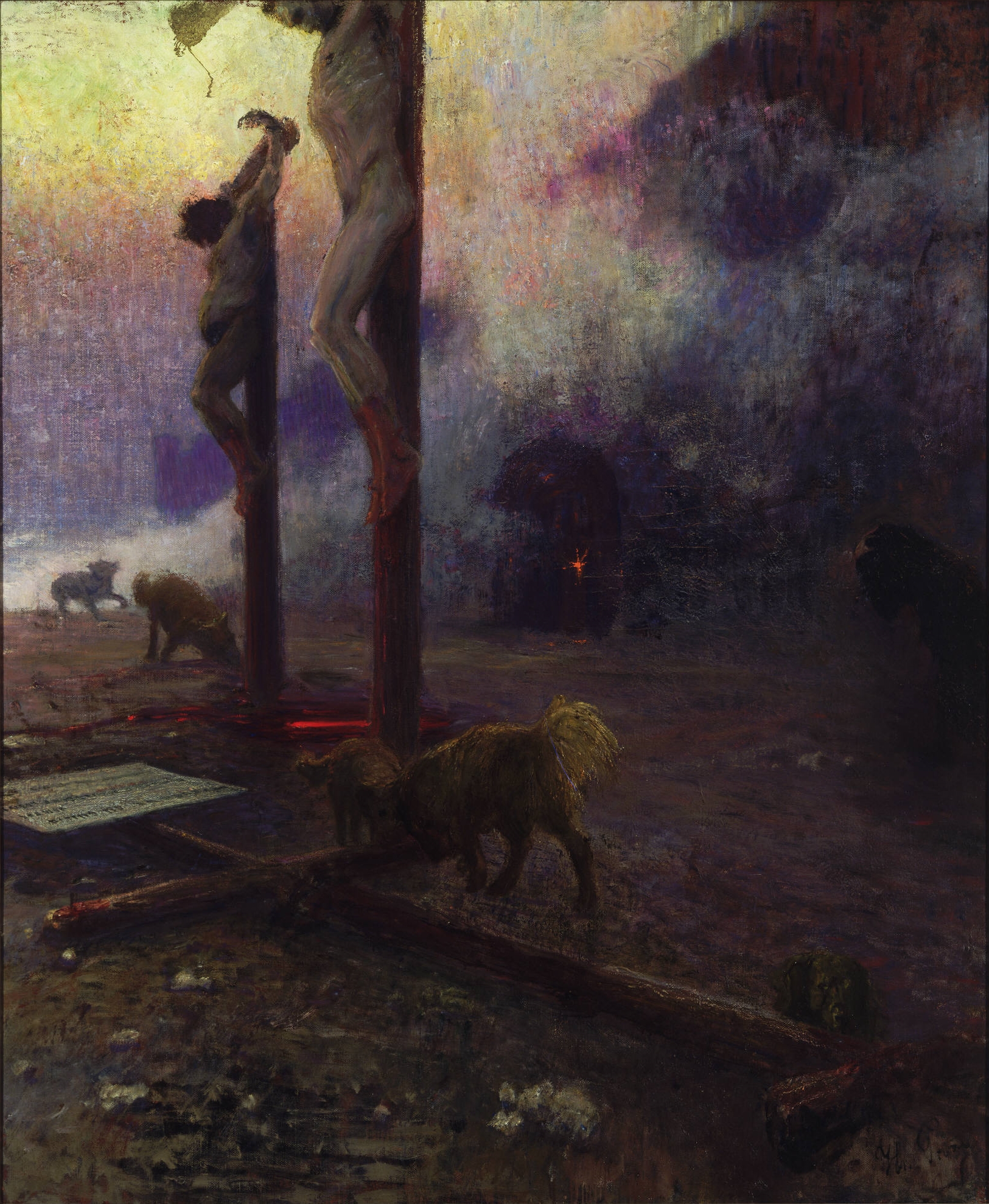Common misconceptions on the esoteric teacher-student-relationship
Maturity cannot be achieved alone. There is a need for guidance and discipline. The path is unknown, the night is dark, and the road is full of danger. Dangers include preoccupation with selfishness, false visions, misinterpretations of mystical states, arrest in development, fixation in a particular state, appeal to various drugs to create false mystical experiences, and, not infrequently, overwhelming anxiety and insanity.
Mohammed Shafii
As I have expressed several times already, I am convinced of the importance and relevance of an esoteric teacher-student-relationship in line with spiritual traditions such as Sufism or Vajrayana Buddhism, for example. Within the occult scene, this topic comes up in discussions repeatedly and to me it seems that there are some very common misconceptions carried around by the ‘I do not need a teacher’-supporters. Since this subject is also important for understanding other aspects of my work and writings, addressing these misconceptions deserves a post of its own. As always, my musings are informed by the Kosmic Gnostic current I work in but are by no means meant as representative for every tradition that employs teacher-student-relations. Nor do I consider each person that rejects such an approach to follow the same reasoning or subscribe to each point I will mention – this is rather a merging of different viewpoints which I have come across so far and that seem to me to be pretty much ingrained within contemporary occulture, often stemming from our Western way of thinking/upbringing and rarely questioned.
A common misconception is the idea that if you support a teacher-student-relationship you believe that everyone would need such. Well, no, I do not believe so. On the one hand, I think it depends on the system you are working in, which is kind of self-evident. And on the other hand it depends on what you want to achieve, i.e. why you do what you do. If Occultism is something we pursue to find more meaning in life, to explore ‘other realities’, help our mundane life with some magic or if it is the equivalent to ‘belonging to a subculture’, having another religion/spirituality, feeling more individual and less mainstream, a bit more ‘edgy’, to give our ‘art’ a more sinister touch or whatever else it is one does that equals acquiring occult knowledge and using it in some activities, then one certainly does not need a teacher. You might need someone to recommend you a good book or show you another technique but that is about it. In this case it does not even make sense to argue about teacher-student-relationships as there is clearly no necessity for them. However, if you are pursuing an actual metaphysical transformation, a teacher-student-relationship embedded in a strong initiatic tradition is your best bet in my opinion (and that of quite a few spiritual traditions). This does not mean that there are no exceptions but in the majority of cases any spiritual self-illumination equals rather a self-illusion and while you might achieve an amount of insight and knowledge on your own, you will not move beyond this – for how could you? To quote another Sufi teaching: “On all paths of spiritual training, the teacher is of central importance. He or she embodies the teaching as a living representation of the tradition. He or she helps the student to grow beyond the boundaries of self. Because each person can only, by definition, operate inside his or her current limits, outside intervention is indispensable to make the ‘breakthrough.’” (Ozelsel). Again, if you do not require any “breakthrough” or if moving a bit beyond your comfort zone now and then is enough to satisfy your need for ‘spiritual change’ or a feeling of ‘magical experience’ then I certainly agree that you do not need a teacher except maybe in the educational way of training you in the methods or knowledge of your system.
Probably the most common misconception is the (often implicit) thought that the disciple in an esoteric teacher-student-relationship is someone ‘following a guru’ and gives up their own will and personality. This is not totally wrong but taken out of context and misinterpreted, meaning that the no-master-but-me-occultist understands ‘will’ and ‘personality’ in a different way and/or regards them as paramount or very vulnerable and thus the idea of ‘giving them up’ (also something one would have to define) is understandably terrifying. But let us get the elephant out of the room: Yes, abusive spiritual teachers and cults are a thing. And it is just as true that such false teachers look for the student who already has issues. A student who is often looking for a teacher exactly because they want them to take care of those issues and/or unto which they can project their issues instead of taking self-responsibility; false students are a thing, too. This creates a vicious cycle and co-dependency. It is certainly not the teacher-student-relationship I am talking about. However, it feeds into the image, especially outside of spiritual traditions, that a spiritual teacher is a power-hungry, manipulative narcissist and that their student is an ego-deprived, spineless puppet. This might not be said so explicitly but it is implied when people (and now we are back to the occulture) reject the teacher-student-relationship with ‘arguments’ like “I am my own master” or “I believe in the sovereignty of the individual”. I would rather call those sentiments. Sentiments which in turn point to the misconception I mentioned above as they imply that the disciple of a teacher is not his/her own master or ‘a sovereign individual’. As said, at the basis of such sentiments may lie the fear of being powerless, of not having control. Some people cling so much to their need of appearing in control that they naturally reject anything that seems threatening to this – like ‘giving control to someone else’. Which is what they think a teacher-student-relationship boils down to. One person giving control to the other and that person exercising this control for their own selfish benefits. Sometimes it is the inner knowledge of ‘I would abuse this power’ that leads to the fear of being abused by the other. Sometimes it is the knowledge of having a codependent personality structure that might get caught up in an unhealthy relation. Another reason why I would never say that everyone needs a teacher-student-relationship. A teacher-student-relationship can address some psychological issues but it should not become a substitute for therapy! However, a true esoteric teacher-student-relation does not focus that much on the ‘who is in control’ but rather on the individual limits and challenges of the student, on creating a sacred space and the means for transmission. It is neither a dead-end-street nor is there an immediate point-of-no-return. It does require self-reflection and honesty on both sides, however, as well as trust and commitment. If you cannot ‘jump’ if the teacher tells you to because you think that is mind-less, weak-willed submission and your will and spiritual insight knows better, then you are clearly not meant for this and cannot move beyond the limits your will and insight will set for you.
Focus on the teacher-student-relationship as ‘giving away your independence / power / will / whatever’ often goes hand-in-hand with another misconception, namely that every relation of spiritual authority is a teacher-student-relationship. The rejection of the teacher-student-relationship thus becomes a rejection of authority and this is of course very much en vogue and ingrained in modern Western society. Partly for the right reasons, partly not. But as I do not want to slip into political discussions, let us just stay with the point at hand and allow me to state that the relation between a group leader or someone with a higher initiatory level and other group members is not automatically an esoteric, sacred teacher-student-relationship. It should be one of mutual respect and there might be teaching involved but that is not the same by far. Even the teacher-student-relationship that you (both!) want to be this sacred relation does have to develop to this point. It is not a decision you just make. Yes, there is the well-known saying that the master will appear when the student is ready but there are different layers to this saying and in my view, it usually does not mean that he or she has not been present before. You will already have worked or at least communicated with each other. Because that is the only way that you can evaluate and develop this relation to the point when “the master will appear”. At which point you will realize that you are your own master in having caused your master to ‘appear’ and to accept you into the sacred space of the master-disciple-relationship.



